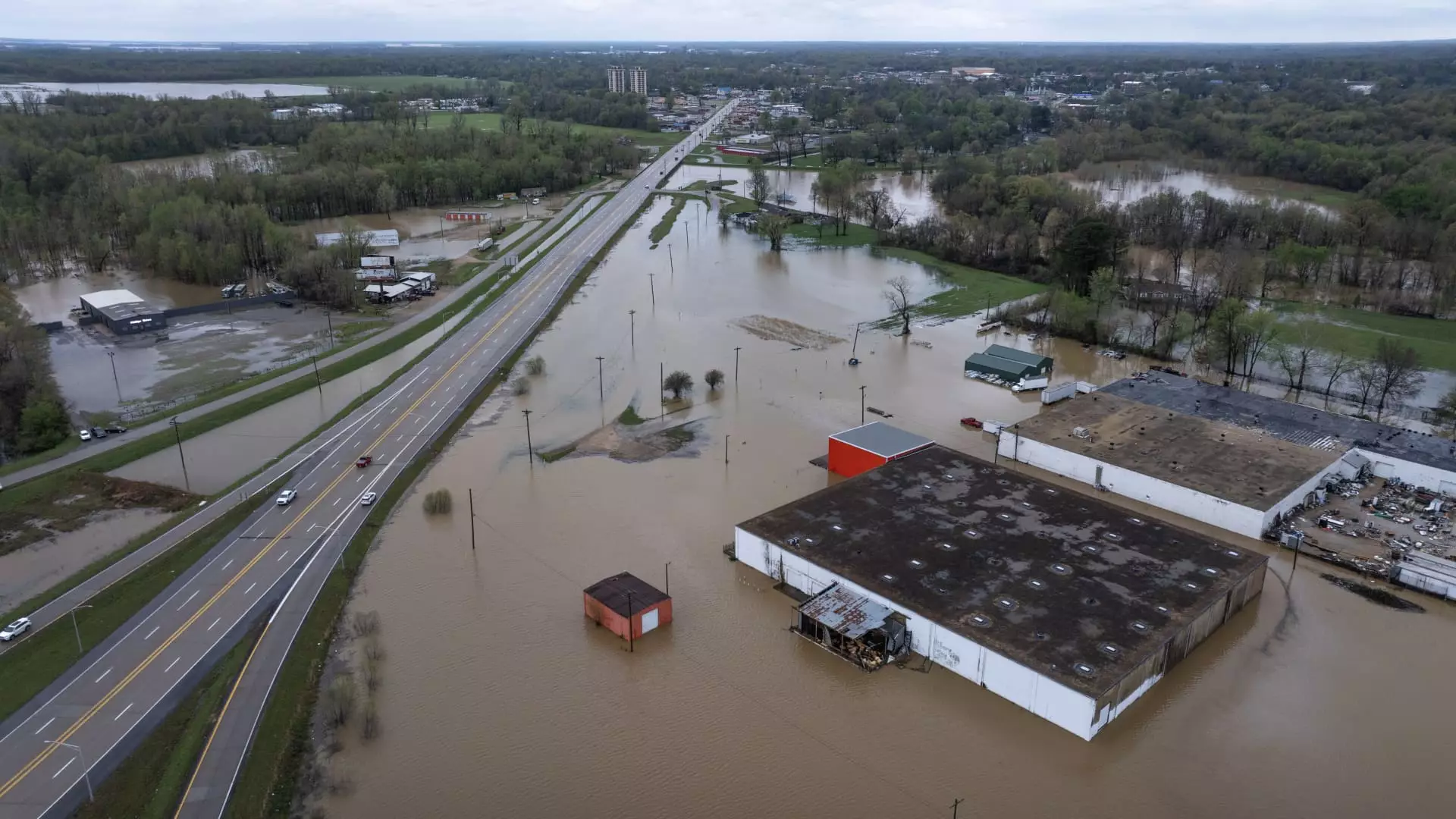The weather patterns wreaking havoc across the American Northeast and parts of the Midwest and South have laid bare the harsh realities of climate change and the vulnerability of certain regions. After a series of powerful storms claimed the lives of 21 individuals and caused widespread flooding, the repercussions have been felt not just in financial terms, but in the immeasurable emotional toll borne by survivors. These natural disasters raise serious questions about infrastructure preparedness, governmental response, and the societal implications of a changing climate.
As we plunge deeper into spring, the warm months are expected to be accompanied by increased precipitation and potential weather anomalies. In many ways, what we are witnessing isn’t just an unfortunate meteorological event; it is a clarion call to action. With millions of people under flood watches, particularly in Georgia and Alabama, we are confronted with an urgent need for comprehensive planning and reform.
A Trace of Inequity in Resilience
What stands out amid this catastrophe is not merely the brazen forces of nature but the societal inequities that underscore who suffers the most. Areas that experience systemic neglect, often due to socioeconomic factors, find themselves on the front lines of these environmental onslaughts. The aftermath of flooding in regions like Kentucky raises questions about whether equal resources are available to all communities when disaster strikes. Those in low-lying areas tend to bear the cost of inadequate infrastructure, and in many cases, are left without the resources necessary to recover.
Take the situation in Anderson County, Kentucky, for instance, where emergency evacuations were issued after more than seven inches of rain. Local authorities reported rescues of over 40 residents, highlighting not only the urgency of the situation but also the dire need for better evacuation protocols and infrastructure designed to withstand extreme weather. Residents have been left to grapple with the haunting realization that their lives and belongings can vanish in a single rainfall.
A Warning Lost in Translation?
Despite overwhelming evidence from weather experts about the increasing severity of storms, the political rhetoric often seems disconnected from these realities. A recent forecast from NBC’s Al Roker noted that some rivers might experience major flooding, and yet, government action often lags profoundly behind scientific assessments. If the political apparatus remains mired in partisan debates, we risk a perpetuation of status quo responses that do little to aid those in immediate danger.
As we grappled with last week’s storms, we saw tornado reports skyrocket, indicating that extreme weather events are no longer anomalies. This insistence on viewing these occurrences as isolated may protect political leaders from addressing the core issue: climate change and its impacts are relentless. Households are still reeling from a series of devastating storms, yet many are simultaneously decrying inadequate responses from institutions charged with safeguarding their welfare.
The Unyielding Nature of Climate Change
Scientific consensus indicates that climate change is making extreme weather more common and severe. News reports about torrential rains giving rise to unprecedented flooding point towards a longer-term struggle with the elemental forces that threaten human life. Yet, more perplexing is the apparent inertia surrounding the adaptation measures needed to combat these imminent threats.
With low-pressure systems sweeping through, wreaking havoc from the southern mid-Atlantic to the Gulf Coast, approaches toward climate change must be multifaceted. It requires collaboration across sectors—governmental agencies, local communities, and non-profits must combine efforts and prioritize investments in resilient infrastructure. By recognizing the intertwining roots of social justice with environmental sustainability, we can build a society that is not just aware but also prepared.
Amidst these treacherous storms lies an opportunity for introspection and growth. Residents have expressed profound loss and disillusionment, yet they also have the chance to inspire the reforms necessary to build a more equitable suite of resources and infrastructure for all communities. Never has the urgency to act been clearer, and it is upon us to wield our voices against the tide of rhetoric that often overlooks the true stakes involved in climate action.

